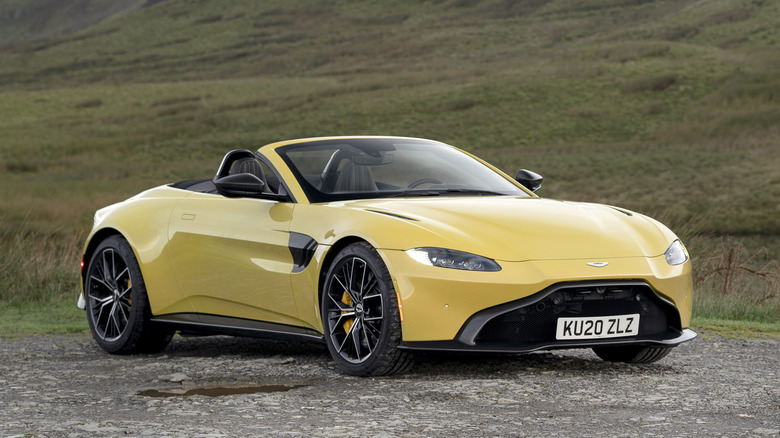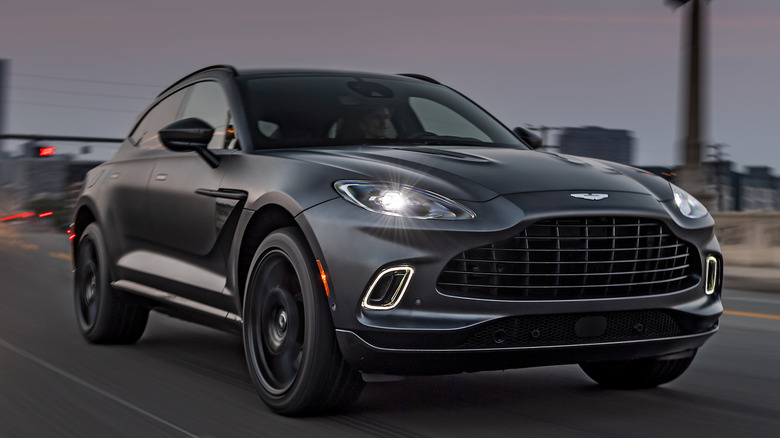Why Aston Martin Made The Switch To Mercedes AMG Engines
Competing automakers work together more often than one might think. For instance, Toyota and Subaru collaborated to build the Scion FR-S/Toyota GR86 and the Subaru BRZ. Similarly, Honda and General Motors have started jointly developing hydrogen fuel cell technology. Usually, when automakers share notes and work together, everyone wins. In 2013, Mercedes-AMG, the famed tuning house for the larger Mercedes-Benz company, entered a strategic partnership to produce V8 engines for world-renowned James Bond car producer Aston Martin.
The first car to receive the new powerplant was the 2018 Aston Martin DB11, usually fitted with a V12. The 4-liter twin-turbo engine threw down 503 horsepower, and Aston Martin claimed, via a press release, that "the V8-engined DB11 has an increased sense of agility." After all, removing four cylinders and swapping out the engine for a significantly smaller option does alter handling dynamics. Reviewers loved the new powerplant, and all was right with the world as Aston Martin still utilizes an AMG-based powerplant for several of its contemporary vehicles, including the brand's first SUV, the DBX.
But why would a company, well known for its almost perfect grand tourers and sports cars, seek the help of another company for engines? Did Aston Martin suddenly forget how to make V8s?
A little help from friends
Aston Martin doesn't have trouble building its own engines, as high-end Astons still come with a tried and true V12. But as emissions regulations get tighter into the future and V12 engines become less viable over smaller displacement engines and eventually electric motors, Aston would need to engineer an entirely new engine from scratch. That's where Mercedes came into the scene in 2013. In an interview with Autocar, Aston Martin's chief technology officer Roberto Fedeli said, "Without Mercedes we could be in trouble." In the same interview, Fedeli notes that the collaboration isn't going anywhere soon.
It's important to consider that Aston Martin, despite making iconic cars recognized by everyone, is still a very small automaker, especially in comparison to the automotive giant Mercedes-Benz. According to Aston Martin's financial results for 2022, the company sold only 6,412 cars over the entire year. Mercedes-AMG, by itself, sold 137,700 vehicles over the same period. In addition to providing engines and electrical components, Mercedes-Benz also owns a not insignificant 9.74% of Aston Martin. That ownership stake is expected to get larger in the coming years.
The Mercedes-powered Astons are actually in pretty good company when it comes to supercars. The McLaren F1, regarded as possibly one of the greatest cars ever made, is powered by a BMW engine.

